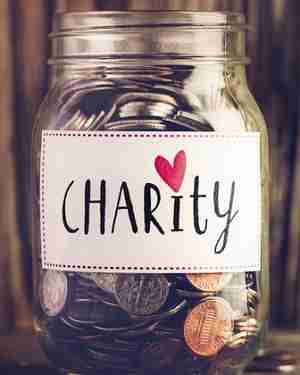You must check they have eligibility for charity status and then apply the correct rate.
Note: Community Amateur Sports Clubs (CASC) do not qualify as a charity. That means they cannot receive VAT reliefs.
Checking if the Charity is Eligible
It is your responsibility to check whether the client has charitable status. They will need to produce evidence showing they are a registered charity.
The charity must provide you with a ‘certificate‘ or written declaration. It will confirm whether they meet the conditions to get the relevant VAT relief.
Evidence of Charitable Status
Charities from England or Wales must supply their Charity Commission registration number. If they are from Scotland or Northern Ireland they will need a letter of recognition from HMRC.
Written Declaration (certificate)
It is a legal requirement for charities to supply an eligibility certificate any time your company supplies building or construction services. The specific information in the certificate means you can then issue invoices at the zero rate.
A declaration certificate is not required for other items sold at zero or reduced rates. But, the charity should still prove to you that they are eligible to get the relief.
The following declarations are example items listed on the government website. The samples show information that a charity would need to supply to your business:
- VAT Notice 701/58: Charity advertising and goods connected with collecting donations.
- VAT Notice 701/7: VAT reliefs for disabled and older people.
- VAT Notice 701/6: Medical and scientific equipment, motor vehicles, and computer software.
Note: Invoices or order forms, for good or services supplied, need to be separate from the written declaration. The company is legally required to keep all completed declarations for at least 4 years.
Items Qualifying for the Reduced Rate VAT
Specific rules apply for supplying fuel or power to eligible charities at reduced VAT rates in the United Kingdom.
Items Qualifying for Zero Rated VAT
Zero rates may apply when a business sells the following to a registered charity:
- Advertising and goods connected with collecting donations.
- Aids for the disabled.
- Construction of buildings (e.g. village halls).
- Drugs and chemicals.
- Equipment for producing ‘talking‘ books and newspapers.
- Lifeboats, slipways, and launching or recovery equipment.
- Medical and scientific equipment.
- Rescue equipment (e.g. light enhancing equipment).
- Resuscitation training models used in CPR First Aid training.
- Medicinal products for humans or animals.

Certain medical and veterinary equipment may also be zero-rated for VAT businesses if you are selling to:
- Health bodies (e.g. National Health Service Trusts).
- Non-profit research institutions.
- Charities that care for the chronically ill or disabled people in an institutional setting.
- Charities providing transportation for disabled people.
- Charities providing first aid and rescue services to humans and animals (e.g. St John Ambulance and NSPCA).
Monies used for purchasing this equipment must be from donations or charitable funds. The eligibility declaration should state this for clarity. Items that are meet these regulations include:
- Medical, scientific, and veterinary equipment.
- Ambulances, ambulance equipment, and other motor vehicles used for medical use.
- Goods and services for disabled people.
- Rescue equipment and resuscitation training equipment (e.g. Resusci Annie)
Note: Another section explains more about the laws and regulations of charities in United Kingdom. The GOV.UK website also has a list of references and eligible items related to VAT and charity organisations.

